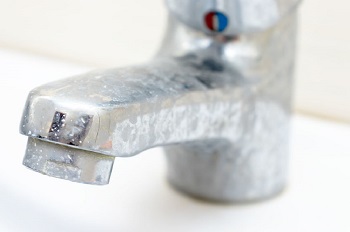You’ve just moved into your new home. It’s in a beautiful development with a municipal water system, so you know that your water will be sake to drink, and there will be plenty of water for you and your family. But, do you still need a water softener?
Is Municipal Water Hard Or Soft? Municipal water can be hard or soft like any other water supply. Municipal water is treated to make it safe to consume, but the choice of making municipal water soft is often left to the homeowner.
Your municipal water may be soft or hard, the only way to be sure, is to test your water with a hardness test kit. If your water is hard, you will likely notice several key symptoms that can be remedied with a water softener.
Why wouldn’t municipal water be soft?
Softening hard water can be a very costly process when done on a large scale. The cost of materials, labor, water, and equipment up-keep for even a small housing development would be very high.
Often, not all homeowners like to have softened water, and not all homeowners may want the additional maintenance charge that would come with having the water for the entire development softened.
Also, the amount of water needed to regenerate the enormous water softeners that would be needed for an entire development would put a great strain on any natural water supply.
How hard can municipal water be?
Municipal water can be just as hard as any other water supply. If the water in the area is hard, it will most likely be about the same hardness from a municipal well as it would be coming from a private well.
Because water hardness varies quite a bit from one area to another, the water supplying a municipal water supplier may come from a well that has very different water characteristics than the water of neighboring private wells.
The United States has a very wide range of hardness throughout the country. This can also be the case on a smaller scale in areas where there are both municipal water suppliers, and private wells. (Source)
Is hard municipal water safe?
Whether municipal water is hard or soft, it has most likely been treated with chlorine or other disinfectants to make sure that it is safe for consumption. Calcium and Magnesium which are the primary contributing minerals that make water hard are both important minerals for good health.
Although it is widely accepted that the average person gets enough calcium and magnesium in their everyday diet, the addition of calcium and magnesium from hard water is not considered to be harmful in any way.
Even municipal water that is soft should have also been disinfected in the same way as hard municipal water, but the lack of calcium and magnesium will provide little benefit towards healthy daily requirements of these minerals.
How to know if your municipal water is hard or soft?
The simplest and most reliable way to know if your municipal water is hard or soft is to use a water hardness test kit to determine exactly how hard your water is, but there are other signs of hard water that you may notice.
Sure signs that your municipal water is hard!
White (chalky) spotting on your water faucets, showerheads and shower doors.

Calcium and magnesium that has been dissolved in water can leave a white powder looking film on water faucets, showerheads, and other water fixtures.
When water containing calcium and magnesium evaporates away, it will leave the hard minerals behind as a chalky looking stain that can be very hard to remove.
If you have noticed this chalky looking film on your water fixtures, use some C.L.R. and a little scrubbing, and you should be able to remove the hard water stains before they do any permanent damage to your fixtures.
Showerhead spraying in all different directions.
Hard water will leave mineral deposits where the hard water is left to evaporate. This means that hard minerals will build-up on the outsides of water faucets and showerheads.
As the minerals build-up on the outside of a showerhead, they will gradually make the openings on the showerhead smaller.
Since the minerals generally do not build-up evenly around the openings on the showerhead, the minerals can build-up more on one side and spray the water at an angle.
Soaking the showerhead in C.L.R. will loosen the hard mineral build-up so you can easily remove it with a towel or brush. If the build-up is to the point where the showerhead can not be cleaned, it will need to be replaced.
White staining in the toilets.
Because municipal water usually contains chlorine, staining or discoloring in toilets is not very common. But hard water in municipal water will still leave a dull white film from the water down, and spotting from the water line up.
This is particularly noticeable on colored toilets, where the water is used often because the hard water spots will continue to develop each time that the toilet is used.
Round white spots on your glassware.
If you are familiar with hard water, you have probably seen these spots before. They are relatively clear in the center, with a chalky circle. This is because the hard minerals settle on the outside of the water drop as the water is evaporating.
Even though these spots may look different than other hard water staining, they are just the result of hard water that has evaporated in larger drops.
Soap and shampoo not lathering well.
Some people think that their municipal water doesn’t lather well because of the chemicals that are used by the municipal water supplier.
Actually, the most common reason that your municipal water is not lathering well is because of hard minerals in the water and not chemicals at all.
The most common chemical used by municipal water suppliers to disinfect your municipal water is chlorine. For the most part, most of the chlorine that is used to make municipal water safe loses most of its effectiveness soon after it has been introduced to the water.
By the time the municipal water reaches your home, the chlorine level is often very low if not completely gone.
But since most municipal water suppliers do not soften the water, water that is hard at the treatment facility will remain hard as it comes into your home. This is why a water softener is often needed, even if you have water coming from a municipal water supplier.
Do I need a water softener for my municipal water?
Since municipal water is often hard, and you will need a water softener, a reverse osmosis drinking water system is a popular add-on to any water softener.
Because a water softener uses salt to regenerate its water softening resin using the process of ion exchange, a reverse osmosis system will remove up to 98% of the sodium in your water.
Just because your water is supplied by municipal water supply, does not mean that it is hard or soft, it only means that it should have been treated to ensure that it is safe to drink and use for everyday needs.
Consult your municipal water supplier for a detailed report of your water to determine if your municipal water is hard or soft.

